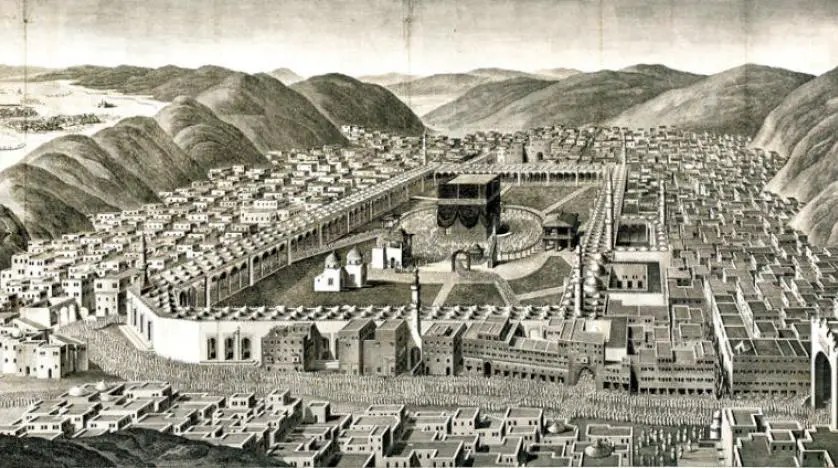Story of Prophet Dhul-Kifl is not mentioned much in Quran though In the Quran, Dhul-Kifl (ذو الکِفل) is one of the prophets of God whose name appears twice in the surahs Anbiya (الانبیاء) and Ṣād (ص). The Israelite prophet Ezekiel, who is also known as Ḥazqiyāl (حَزقيال) in Arabic, is thought by historians to be Dhul-Kifl. He is mentioned in the Qur’an as one of God’s chosen servants who is patient and righteous. We will examine the Story of Prophet Dhul-Kifl following in this following article:
A tolerant and upright servant of God named Dhul-Kifl

Other than placing Dhul-Kifl’s name next to the names of prophets, which indicates that he was also a prophet, the Quran says little about him. God mentions him as one of the patient and pious in surah Anbiya:
وَإِسْمَاعِيلَ وَإِدْرِيسَ وَذَا الْكِفْلِ ۖ كُلٌّ مِّنَ الصَّابِرِينَ ﴿85﴾
And [remember] Ishmael, Idris, and Dhul-Kifl—each of them was among the patient.
وَأَدْخَلْنَاهُمْ فِي رَحْمَتِنَا ۖ إِنَّهُم مِّنَ الصَّالِحِينَ ﴿86﴾
We admitted them into Our mercy. Indeed, they were among the righteous.
Most Quranic scholars view Dhul-Kifl as a prophet sent to the Israelites or Children of Israel. The Israelite prophet Ezekiel, who is highly regarded by Jews, is frequently credited with identifying him. According to some Quranic scholars, Dhul-Kifl had promised to:
- Daily fasting
- Keep up each night.
- Worship only God and
- Never lose your temper;
as a result, Dhul-Kifl is granted entry into God’s mercy in the Qur’an because of his righteousness.
The Quran describes Dhul-Kifl as God’s chosen person.
Dhul-Kifl, Ismail, and Elisha are all mentioned by name in another passage of the Quran, and it is stated that God chose and selected each of them. Scholars have claimed that Dhul-Kifl was a prophet of God by quoting this verse:
وَاذْكُرْ إِسْمَاعِيلَ وَالْيَسَعَ وَذَا الْكِفْلِ ۖ وَكُلٌّ مِّنَ الْأَخْيَارِ ﴿48﴾
And remember Ishmael, Elisha, and Dhu’l-Kifl—each [of whom was] among the elect.
Name of Dhul-Kifl in the Quran
Dhul-Kifl literally translates as “possessor of or granting, a double requital or part,” according to some Quranic commentators. Between Najaf and Hilla, there is a town in Iraq by the name of Kifl (کِفل). According to some, Kefil is Ezekiel’s Arabic name.
On the other hand, others claim that the word kifl is derived from the Arabic word kiflah, which implies assurance. According to one story, he was known as Dhul-Kifl because he had promised the lives of 70 prophets. Additionally, according to another account, some Israelites managed to flee and were given refuge by Dhul-Kifl, who ensured their safety.
PROPHET DHUL-KIFL STORY
A narrative of the Story of Prophet Dhul-Kifl given by Imam Ibn Jarir sheds some light on the Prophet’s life.
As Prophet Al-Yasa (Elisha) aged, he sought to designate a successor who could assist in leading the Israelites, and he required someone with a composed attitude and a clear head. He gathered his followers and outlined three requirements that, in his opinion, would demonstrate the qualities of a great leader:
The individual who will be given consideration to take my place must fast every day of the year, remember Allah in his prayers at night, and never lose his temper.
A relatively unknown individual who the populace disregarded got up and declared his interest in the position. He was asked by Prophet Yasa if these three requirements had been met. Yes, he answered to all three questions, but for some reason, Yasa did not accept him and rejected him.
After a few more days had passed, Yasa convened the group once more and reiterated if his demands had been fulfilled. Everyone stayed in their seats next to the same man. Yasa chose the man to be his deputy after observing his determination.
But to really put the man to the test, he requested a few individuals to try to convince him to do something that would make him lose his position as his deputy.
They all gave it a shot but fell short.
Iblis (Satan) then offered Al-Yasa his services, saying, “Leave him to me. I’ll watch out for him.
At this time, the man established a pattern that included fasting during the day and praying, and remembering Allah at night. He would slumber in the afternoon to refresh himself.
Iblis made the decision to wake the guy up just before his afternoon siesta. He knocked on the door and pleaded with the homeowner to let him in, claiming, “I am an old suffering man.”
Iblis was welcomed inside and immediately started ranting about the cruelty and unfairness he had to endure. He dragged out the narrative so much that he left no room for Prophet Dhul-Kifl’s usual sleep. The next day, he made Iblis an offer to come to see him in court so that justice might be served.
The following day, the Prophet awaited the Iblis, but he did not appear. He waited for the Iblis to show up the following morning, but he did not. Iblis finally arrived and began pounding on the door in the late afternoon, just as Prophet Dhul Kifl was ready to take a nap. “Didn’t I tell you to come to my court yesterday, but you failed to arrive, and you didn’t come this morning?” the Prophet asked, maintaining his composure.
“Sir, my foes are very nasty people. When they learned that you were sitting in your court and would order them to give back to me what was owed, they agreed to settle the matter out of court,” the Iblis retorted. But when you left your court, they went back on their promise.”
Prophet Dhul-Kifl urged the old man (Iblis) to return to his court to decide disputes as the conversation went on for a while, keeping him from taking his normal nap. The man waited anxiously in the court once more, but Iblis did not come. Due to his lack of sleep, he was extremely exhausted when he arrived home that day. He requested that the family members not answer the door if someone is knocking.
Iblis attempted to wake him up once again so he would be unable to fast, and pray, and hoped he would become enraged, but the man’s family members stopped him when he tried to knock on the door. Iblis was adamant, so he entered the man’s house in a different way and began hammering on the door of his room.
The Prophet observed Iblis entering the home despite the door being closed. He asked Iblis, “Are you the enemy of God?” as he immediately realized that he was speaking to Iblis.
Iblis, he acknowledged, adding, “You have foiled all my schemes and frustrated all my attempts to draw you into my design. My goal was to enrage you in some way so that Yasa could refute one of your assertions.
The man was given the title Dhul-Kifl, which means “possessor of, or providing, a double requital or part,” as a result of this incident.
May we learn something valuable from Prophet Dhul-Kifl Story and become pious, ignore shaitan (Satan)’s Waswasa (murmurs), and Trust Allah in challenging times.
Read more stories of our beloved prophets. Check out our Instagram Feed.









